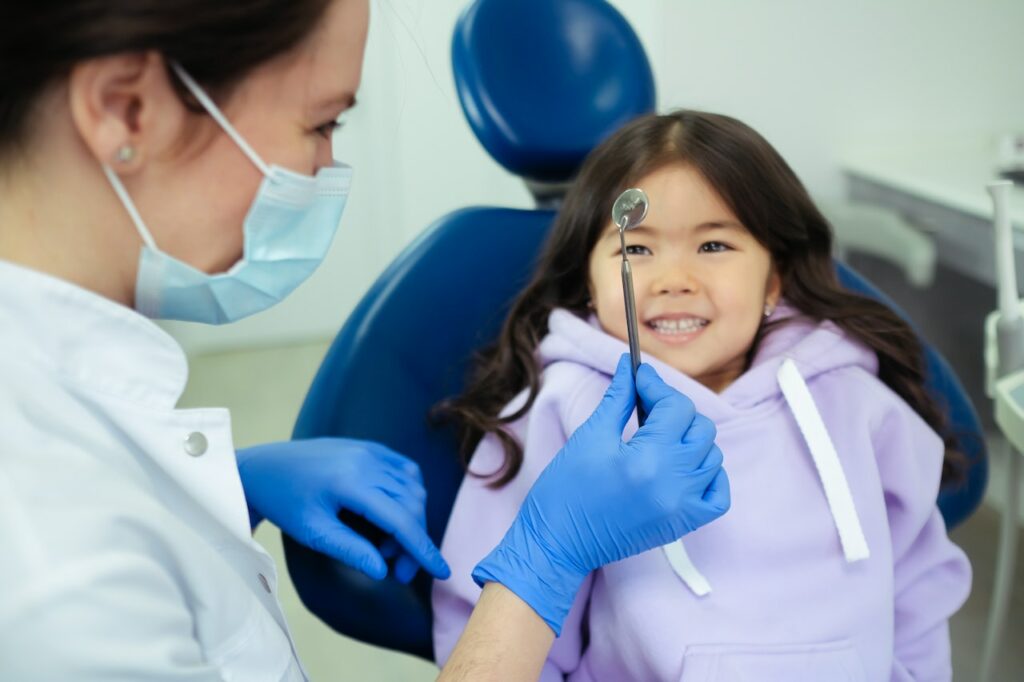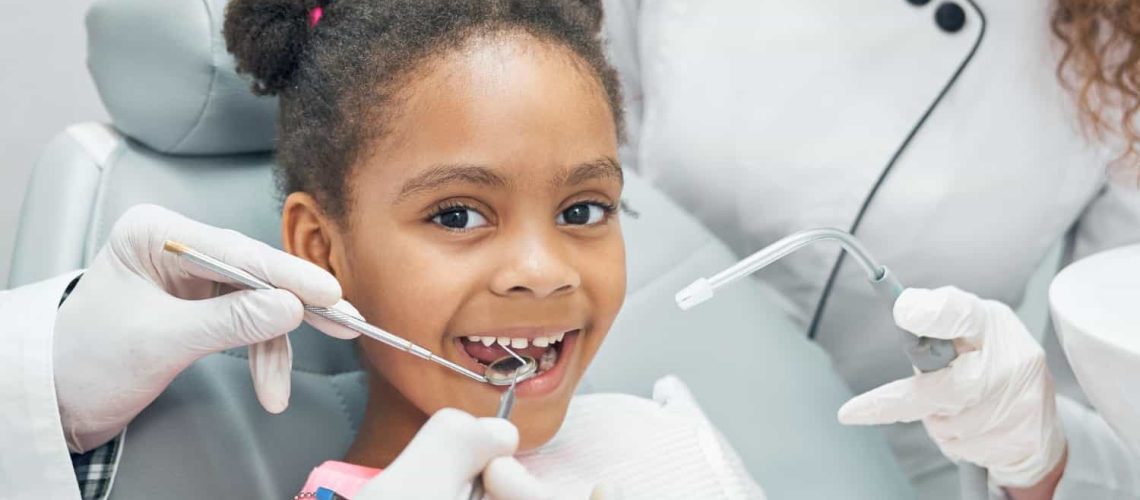Preventive dentistry is a cornerstone of maintaining optimal oral health throughout your life. It involves a range of proactive measures to prevent oral health problems, such as tooth decay and gum disease. Starting early is key to ensuring a lifetime of good oral health. In this article, we will explore what preventive dental care is, why it’s important, how early it begins, which type of dentist offers these services, and the various types of preventive dental care available.
What Is Preventive Dental Care?
Preventive dental care encompasses a range of strategies and treatments aimed at safeguarding your oral health. Its primary objective is to prevent the development of oral health issues, such as tooth decay, gum disease, and dental infections, rather than just treating them after they occur. This approach helps patients maintain healthy teeth and gums throughout their lives while minimizing the need for extensive restorative treatments.
Why Preventive Oral Health Care Is Important
Beyond a gleaming smile, preventive dentistry plays an important role in preserving your overall health and well-being. Let’s explore why preventive oral health care is of paramount importance and how it contributes to a lifetime of healthy smiles.
Early Detection Of Issues
Regular dental check-ups are akin to routine health screenings for your oral cavity. They allow dentists to detect dental issues at their inception, often before any noticeable symptoms occur. This early detection can lead to more straightforward and less costly treatment.
Preventing Tooth Decay
Tooth decay, the most prevalent oral health issue, can lead to cavities and tooth loss if left unchecked. Preventive measures such as fluoride treatments, dental sealants, and good oral hygiene practices can significantly reduce the risk of tooth decay.
Gum Disease Prevention
Gum disease is a pervasive problem that can lead to tooth loss and even impact your overall health. Regular dental cleanings, proper gum care, and early intervention can prevent its progression.
Cost-Effective
Preventive care is cost-effective in the long run. It reduces the need for extensive and expensive restorative procedures. Investing in preventive care today can save you both money and discomfort in the future.
Pain Prevention
Dental problems can be painful and disruptive to your daily life. By proactively addressing issues before they become severe, you can avoid the discomfort and inconvenience associated with dental pain.
Overall Health Connection
Oral health is closely linked to overall health. Conditions like gum disease have been linked to systemic health issues such as heart disease and diabetes. Taking care of your oral health contributes to your general well-being.
Preserving Natural Teeth
Preventive care aims to preserve your natural teeth for as long as possible. This means fewer extractions and replacements, allowing you to enjoy a functional and aesthetically pleasing smile throughout your life.
Improved Quality Of Life
Good oral health enhances your quality of life. It enables you to eat, speak, and smile with confidence. Moreover, a healthy smile can boost self-esteem and positively impact your social and professional interactions.
Patient Education
Preventive dental care includes patient education, empowering individuals to take control of their oral health. Dentists provide guidance on proper oral hygiene practices, dietary choices, and lifestyle factors that impact oral well-being.
At What Age Does A Comprehensive Preventive Dentistry Typically Occur?
The start of comprehensive preventive dentistry typically starts at an early age, with a strong emphasis on instilling good oral health habits from the outset. This proactive approach is essential to prevent the development of poor oral health and ensure a lifetime of optimal dental health.
The American Dental Association (ADA) recommends initiating preventive dentistry services as soon as a child’s first tooth erupts, usually around six months of age. Even before this milestone, parents and caregivers are encouraged to play a pivotal role in maintaining good oral hygiene habits for infants. Gently cleaning the gums with a soft, damp cloth after feedings is a simple yet effective practice.
As children progress into toddlerhood, typically around the age of two or three, it becomes crucial to introduce them to the use of fluoride toothpaste in a pea-sized amount. Children should be taught proper oral hygiene at an early age. habits, including brushing for two minutes, twice a day, and flossing.
Early dental visits are equally vital in comprehensive preventive dentistry. By the age of three, children should begin regular dental check-ups. These visits not only monitor dental health but also familiarize children with the dental environment, reducing anxiety and promoting a positive attitude toward oral care.
Through the various stages of childhood and adolescence, preventive dentistry services adapt to the evolving needs of a growing individual. These services may include dental sealants, fluoride treatments, orthodontic evaluations, and tailored advice on maintaining good oral health habits.
In adulthood, the principles of comprehensive preventive dentistry continue to apply. Regular dental check-ups, professional cleanings, and ongoing education on oral hygiene practices are essential components to maintain optimal oral health.
What Are The Types Of Preventive Dentistry

Preventive dentistry encompasses a wide array of strategies and treatments aimed at preserving and promoting oral health by averting potential issues before they become more severe. These proactive measures not only help maintain a radiant smile but also contribute to overall well-being. In this article, we will delve into the various types of preventive dental care, shedding light on the options available to individuals seeking to protect their oral health.
Regular Dental Check-Ups
Regular dental check-ups are the cornerstone of preventive dental care. These routine visits to your dentist, ideally scheduled every six months, involve comprehensive examinations of your teeth and gums. X-rays and oral cancer screenings are typically part of these check-ups. Early detection of issues is vital in preventive care.
Professional Cleanings
Dental hygienists perform professional cleanings during your check-ups. These cleanings are essential for removing plaque and tartar buildup, which, if left unattended, can lead to cavities and gum disease. Professional cleanings ensure your teeth and gums remain free from harmful bacteria.
Education And Counseling
Dentists play a critical role in educating patients about proper oral hygiene practices. They provide guidance on effective brushing and flossing techniques, as well as dietary choices that can impact oral health. Patient education empowers individuals to take charge of their oral well-being.
Fluoride Treatments
Fluoride is a naturally occurring mineral that strengthens tooth enamel, making it more resistant to decay. Dentists may recommend fluoride treatments, particularly for children, to enhance the protective barrier around teeth.
Dental Sealants
Dental sealants are thin, protective coatings applied to the chewing surfaces of molars and premolars. They act as a barrier against bacteria and food particles, reducing the risk of cavities in these vulnerable areas. Sealants are especially effective for children.
Gum Disease Prevention
Preventing gum disease is a crucial aspect of preventive care. It involves regular dental cleanings, scaling and root planing for more thorough cleaning, and counseling on proper gum care, including the importance of flossing.
Dietary Guidance
Dentists provide advice on maintaining a tooth-friendly diet and avoiding sugary snacks and drinks, which contribute to tooth decay. Proper nutrition is a vital component of preventing dental issues.
Oral Hygiene Products
Dentists may recommend specific oral hygiene products tailored to individual needs. This can include toothbrushes, toothpaste, floss, and mouthwash designed to address specific oral health concerns.
Orthodontic Evaluations
Early orthodontic evaluations for children can identify potential issues with bite alignment and tooth positioning. Early intervention can prevent more extensive orthodontic treatments in the future.
Final Thoughts
Understanding that early intervention is a cornerstone of maintaining dental health. By adhering to these principles, we not only prevent the emergence of poor oral health but also pave the way for a future marked by radiant smiles, enduring dental health, and a lifetime of confident, carefree moments.
Sunnyside Dental Care Preventative Dentistry Services
Sunnyside Dental Care is committed to promoting good oral health and offers a comprehensive range of preventive dentistry services. Our team of experienced dentists and dental hygienists provides regular check-ups, professional cleanings, fluoride treatments, dental sealants, and personalized guidance on maintaining excellent oral health. We understand the importance of starting preventive dental care early, especially for children, and tailor their services to meet the unique needs of each patient.
Whether you’re seeking care for yourself or your child, our qualified dentists can provide the guidance and services needed to ensure a lifetime of healthy smiles. Don’t wait until dental problems arise; call us and prioritize preventive dentistry and invest in your oral health today.

